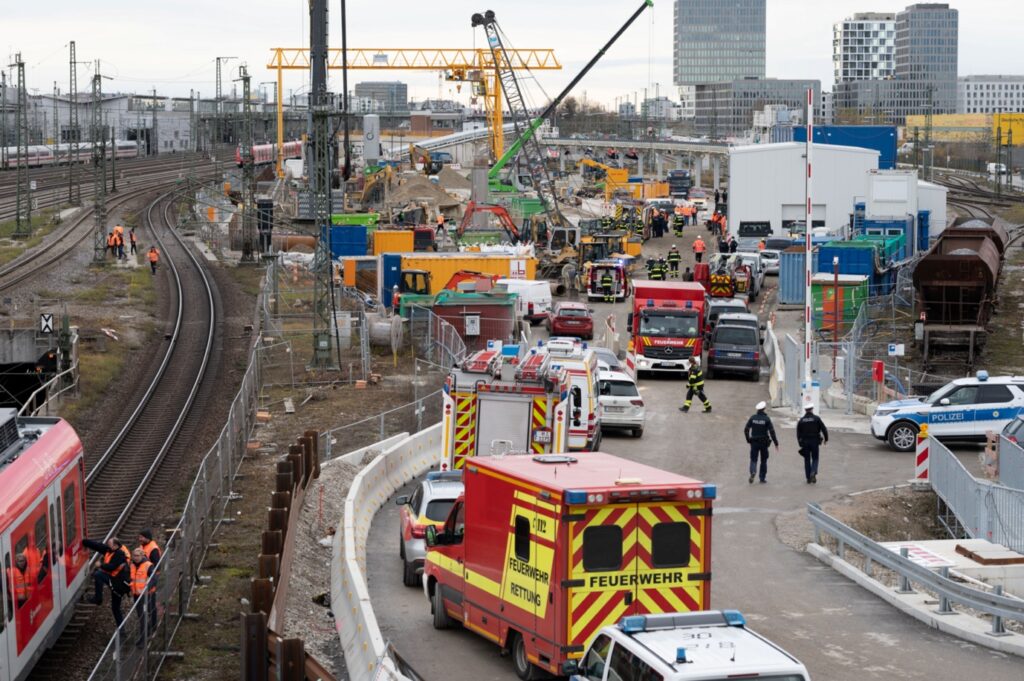WW2 Bomb Explodes at Munich Train Station
An explosion caused by a World War II bomb during construction works has injured four people near Munich train station.

Debris scattered for hundreds of yards
The incident occurred near Donnersbergerbrücke Bridge in central Munich, where police reported that the bomb detonated during tunnel work. Witnesses heard a loud bang, which could be heard several miles away, followed by plumes of smoke. Emergency services rushed to the scene, and bomb disposal experts arrived shortly thereafter.
The blast caused a mechanical digger to be thrown onto its side, and debris was scattered for hundreds of yards. Rail operator, Deutsche Bahn, suspended travel to and from the station while the incident was unfolding. Reports indicate that the bomb was a 550lb (250kg) air-dropped weapon of British or American origin.
In Germany, drilling operations are regulated due to the risk of unexploded ordnance. It is a requirement in Germany to use specialist equipment to “scan” the ground during drilling operations to ensure that bombs are not struck. This has raised questions about why the bomb was struck and whether such equipment was in use.
The history of UXO incidents in Germany
Unfortunately, incidents involving unexploded bombs are not uncommon in Germany. In 2010, three police bomb disposal operators were killed in Gottingen while working on a 1,000lb bomb. In 2014, a construction worker was killed in Euskirchen when a 4,000lb bomb was struck. Similar incidents occurred in 1994 in Berlin, 2012 in Munich, and 2015 in Offenbach. These repeated unplanned detonations raised concerns about the effectiveness of regulations in place to prevent such tragedies.
Unexploded bombs are frequently found across Germany, a legacy of World War II. Up to 2,000 tonnes of unexploded bombs are discovered each year. In contrast, the UK has not experienced an incident like this since the end of World War II.
According to a technical expert in historical bombs, one key difference between the types of bombs found in Germany and those found in the UK is the fuzing mechanisms. The bombs found in Germany are less stable and more likely to function when struck compared to the German-origin bombs found in the UK.
UXO Risk Management Services
At Brimstone we provide bespoke solutions to the risk posed by explosive ordnance. With three offices across the UK, we offer flexible support to projects nationwide. Browse our website today to learn about our range of UXO services.
Keep up to date with Brimstone UXO by following us on Facebook, Instagram, Twitter, LinkedIn and YouTube.